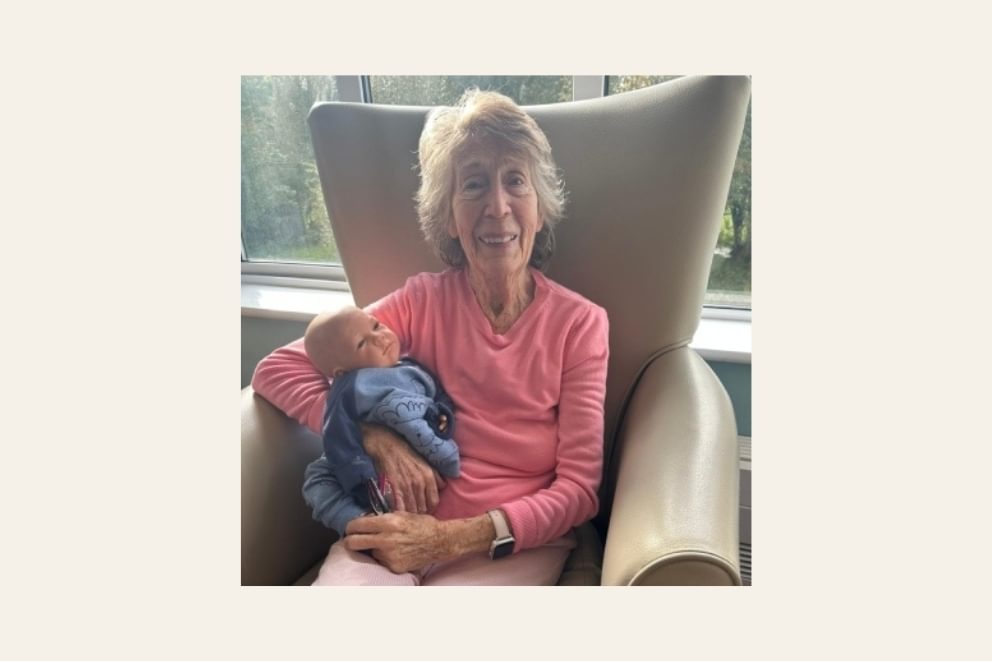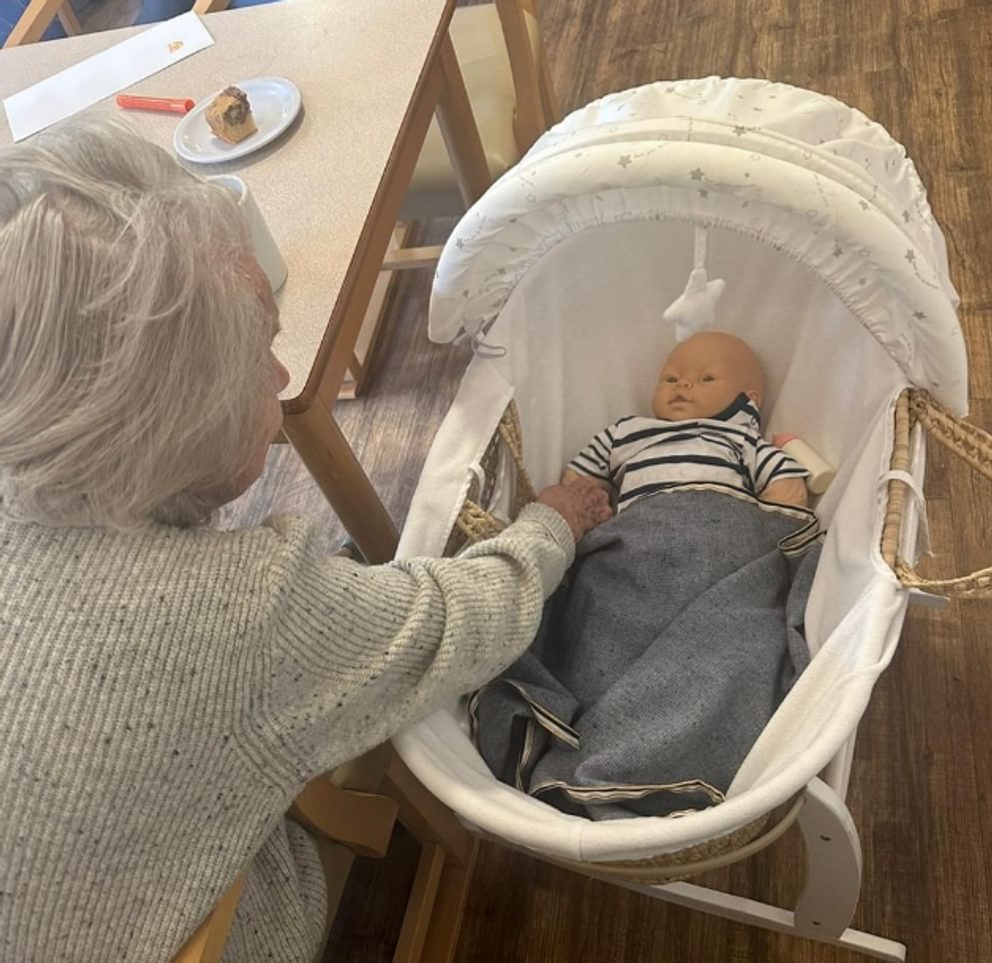


Inspires a Sense of Purpose and Encouraging Engagement at Caring Homes
At Caring Homes, we are always looking for innovative ways to improve the experience and lives of our residents, and doll therapy is a recognised form of care for individuals living with dementia.
A Feeling of Security and a Sense of Purpose
Research told us that doll therapy could help reduce the behavioural and psychological symptoms of dementia and since we’ve introduced it to some of our care homes, we’ve seen a positive impact on residents who have engaged with it.
The act of caring for a doll – similar to nurturing a real baby – can greatly improve residents’ wellbeing and their ability to communicate with others. On the surface, doll therapy is simply the introduction of life-like dolls into the daily life of a resident. Security and trust can often be undermined by dementia, so a doll or a similar toy can provide a sense of security – as it does in childhood - and help with feelings of uncertainty. Doll therapy is based on the ‘attachment’ theory - that taking care of a baby doll can provide a sense of validation, a role and a purpose.
However, doll therapy is not a blanket approach for all, or one that will ever be imposed on a resident. The doll must be introduced in a way that leaves the choice of whether or not to engage with it completely up to the individual. Because the relationship with the doll will be different for each person, the interaction between our care staff and the resident must be person-centred at all times. Essentially, it’s about finding the best approach for every resident and monitoring their ongoing engagement with the doll.
A Positive Effect on Wellbeing and Activity
Our Homefield Grange Care Home family celebrated the arrival of two new additions earlier this year – baby Freda and baby Nigel. Home Manager, Adina, confirmed that for some residents, it had rekindled a sense purpose and positively affected their mood and activity levels.
“Many residents living with dementia are withdrawn or anxious, or find social situations difficult, so the simple act of holding or spending time with a doll becomes a source of comfort, and improves their overall sense of wellbeing,” explained Adina. “Residents’ willingness to interact with others can also be improved as they are proud to introduce their "babies" to fellow residents, the team, or family members”.
The local community has also rallied around this initiative, generously donating clothes, pushchairs, bottles, and more, which make the experience even more fulfilling for residents.
At our Hillside Care Home, baby Emily was welcomed to the family. Residents asked whether they could have slings to carry the baby around more easily, so the team created some. Baby Emily also came equipped with a box of essentials including feeding items, clothes and diapers and she has a cosy Moses basket in the lounge, where residents enjoy wrapping her in blankets and singing her to sleep.
A Sense of Being Useful and Needed
We’ve seen that doll therapy can improve alertness, reduce anxiety and, in some instances, encourage social contact so that residents interact better together. Our Dementia Specialist, Chris Elsley believes that there are numerous theories why doll therapy can be effective and after ten years of watching residents and learning how to use different techniques with them, she describes the use of doll therapy as a way of the person with dementia feeling a sense of “being useful and needed” giving the person not only a purpose, but a feeling of attachment once again.
Chris concluded, “Overall, doll therapy can be a powerful tool in enhancing the well-being of people living with dementia, providing emotional comfort. It’s a non-pharmacological approach to managing symptoms, making it a valuable tool in reducing the reliance on medication.
The act of caring for the doll can encourage physical activity and simple actions as dressing, undressing and carrying the doll can improve motor skills and coordination. One of the most important benefits of doll therapy that I have seen is providing residents with an identity and a role within their own private world. It allows them the chance to care for someone again instead of being the person being cared for.
Education about doll therapy is extremely important because for doll therapy to work effectively, all care staff and family members need to be invested in the therapy. We introduce staff and family members slowly to this type of therapy through training, meetings and workshops for staff and families.
I can honestly say that after all these years, I am often still moved by the holistic benefits associated with doll therapy, and the impact that the dolls can have on people living with dementia”.
Whilst a particular resident’s engagement with doll therapy may not last indefinitely, and it isn’t the solution for everyone, the benefits can be significant. As part of our commitment to innovative and person-centred dementia care, we’ll be introducing more new ‘babies’ to our care homes this year.
